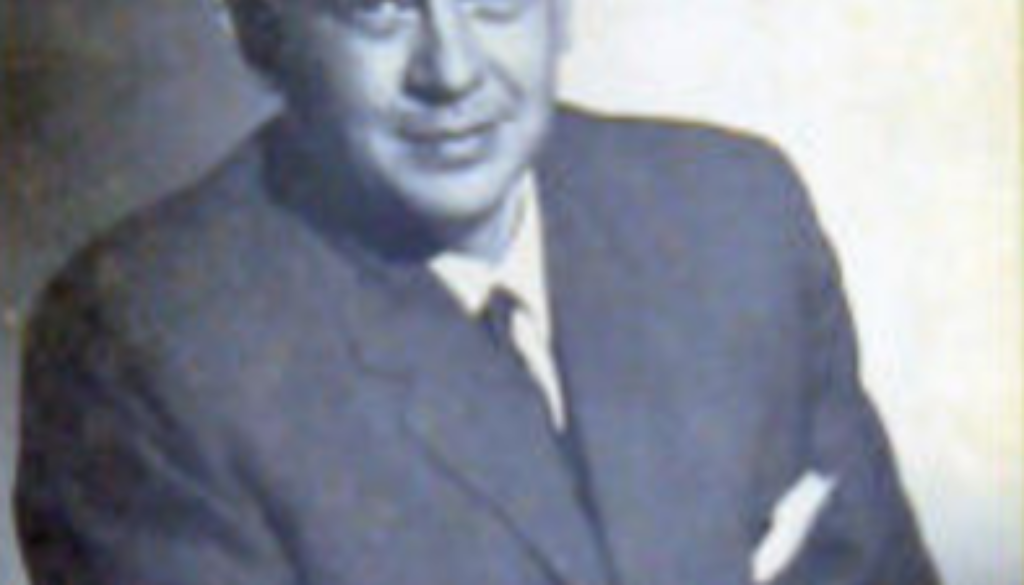E F Schumacher
16-8-1911 – 4-9-1977
Ernst Friedrich Schumacher CBE (16 August 1911 – 4 September 1977) was a German-British statistician and economist who is best known for his proposals for human-scale, decentralised and appropriate technologies. He served as Chief Economic Advisor to the British National Coal Board from 1950 to 1970, and founded the Intermediate Technology Development Group (now known as Practical Action) in 1966.
In 1995, his 1973 book Small Is Beautiful: A Study of Economics As If People Mattered was ranked by The Times Literary Supplement as one of the 100 most influential books published since World War II. In 1977 he published A Guide for the Perplexed as a critique of materialistic scientism and as an exploration of the nature and organisation of knowledge.
He was a trustee of Scott Bader Commonwealth and in 1970 the president of the Soil Association.
Our very own Vivian Griffiths wrote in Camphill Correspondence in Oct 77
THE DEATH LAST WEEK, in Switzerland, of Dr . F. Schumacher comes at an unexpected moment . His work for causes that we feel are right must find new leaders, and what has begun, namely an aware- ness of alternative energy and food sources, must somehow be continued into the consciousness of a society already growing complacent now that the so-called oil crisis is thought to be over.
I heard Dr. Schumacher give a talk at a conference in Dorset last year organised by the Soil Association and a number of us from Botton also attended the Annual Meeting of the Association in York last autumn where he spoke. On both occasions his manner-a refreshing, disarming open approach – cut across the all too dogmatic ideals of some organic farming personnel . Yet he is also, through his presidency of the Soil Association, helped to make organics and the aspirations of those involved in wholefood production recognised as a viable and very sensible alternative to the dangerous spiral in which many conventional farmers find themselves locked with the rising price of inputs . On economics alone, Dr . Schumacher showed up the craziness of such systems.
In the York lecture, Dr. Schumacher’s title was ‘The Next Thirty Years’ . It belonged to him, for he found much of the concerns and hopes of the future in his younger audience . His enthusiasm for food- bearing trees and their development, the seed banks holding rare seeds in storage in case, and also in readiness for the day, the new prolific strains coll- apse through disease or lack of artificial availability; the Intermediate Technology Group, now a world- wide projects agency where many small scale industrial and agricultural ideas have become a reality using a large amount of human skill in the process ; and Small is Beautiful almost part of our language- his book which gave many a new angle upon which to view the world; all are tributes to his thinking and guidance.
We have much to thank Dr . Schumacher for ; in- directly he has opened doors to make our ventures something important in people’s eyes . We are not ignored any more ; ventures in ‘the alternative world’ are listened to for their economic or social sense alone. It leaves us with a growing responsibility to our land-in many people’s eyes it may be we who are the new leaders. Schumacher’s main contribution was the importance of the individual in a working and social economic set-up. Already the people who listened so intently were being scolded by him . In America this year he talked to thousands of students and young working people. In the Obs- erver John Davy says : ‘He saw a danger that his words could be inflated into gas balloons which would carry people gently over the landscape of the world’s problems at a considerable height, in the illusion that their trip was changing life below .’ He went on to say that Schumacher saw real hope for the future in many small-scale but concrete initia- tives that come not from the new means but new ends .
At the moment, in Olympia, the Energy Show is demonstrating a multitude of alternative sources of power. This week an M.P.’s report on uses of energy recommends strongly the use of solar panels and, it accepted, we will be given grants for the conversion work . Certainly Dr. Schumacher’s words nave been listened to. As we approach Michaelmas c can, however, see dangers if people begin to be swallowed up by fanatical ideas . Ahriman begins to take his hold on man’s deeds and inspirations and we come to one of our major Michaelic tasks-to hold strong- ly a balance between Luciferic and Ahrimanic influences pulling mankind.
In Dr. Schumacher we had a people-centred economist. He leaves a large gap in that world.
